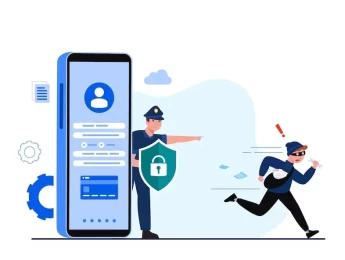Strong management is crucial for an educational establishment to be successful. Education management involves managing all facility features and processes, including SEN education, departments, communication, and student well-being. For a school to conduct its purpose well, the students must always be the prime priority.
Those in education management must be highly competent in communication. Communication is a vital factor in management, as it ensures that all involved parties understand any changes or improvements and explains to students and their caretakers the process and how their education will be influenced.
Furthermore, any individual within education management should understand the concepts, principles, and safeguarding processes. Safeguarding is essential for protecting each student as it’s the process of building a safe relationship with students and identifying potential situations that could lead to harm. Those working with students should be trained and aware of indicators that could suggest that students are vulnerable to harm, as well as the ideal steps to take to ensure they remain safe on school grounds or at home.
Upon completion of this course, participants will be able to:
- Understand the vitality of effective education management for an educational facility.
- Examine what external and internal factors influence the effectiveness of education management.
- Explore different areas of education and comprehend how they all align and rely on one another.
- Ensure all decisions are made with student wellbeing as a priority.
- Open a strong line of communication with students and their caretakers to build trust.
- Analyse school departments and their purpose and contribution to education.
- Evaluate regional laws and regulations and ensure full compliance.
- Provide extensive training to all employees regarding disability awareness and accessibility.
This course is designed for anyone in education who is responsible for management or aspiring to achieve a management position soon.
It would be most beneficial for:
- SEN Managers
- Operations Managers
- Heads of Departments
- HR Personnel
- Headteachers
- Deputy Headteachers
- Chief Academic Officers
- Management Analysts
This course uses a variety of adult learning styles to aid full understanding and comprehension. Participants will review case studies of established educational facilities to highlight key factors of their management, successful processes, and areas for possible improvement.
They will participate in various learning exercises, including presentations, video materials, open discussions, and group activities. This combination of activities guarantees the participants a full and comprehensive understanding of the taught content and related skills.
Day 5 of each course is reserved for a Q&A session, which may occur off-site. For 10-day courses, this also applies to day 10
Section 1: Introduction to Education Management
- Understanding what education management is and its overall purpose.
- Exploring concepts, principles, and common structures of education management.
- What roles are involved within education management, and what are their skill and experience requirements?
- Recognising the consequences of poor educational management within an education facility.
- Prioritising student wellbeing throughout all important decisions.
Section 2: Language and Communication
- The vitality of strong and effective communication within education management.
- Developing a strong use of language and tone to convey a message.
- Building trust with colleagues, students, and student caretakers.
- Communicating openly about education goals and the process of achieving them.
- Ensuring accessible communication for all when interacting with education services – interpreters, translators, and written forms of communication.
Section 3: Focusing on Student Welfare
- Training all teachers and employees on safeguarding standards to protect students.
- Explaining the 6 key principles of safeguarding – empowerment, prevention, proportionality, protection, partnership, and accountability.
- Encouraging an environment that is mental health and disability aware.
- Exploring all methods and techniques to aid each unique individual to ensure educational success.
- Identifying changes in student behaviour and providing interventions when deemed necessary.
Section 4: Maintaining Departments
- Accounting for all education departments and investigating their purpose and roles.
- Gathering facility resources and delegating them where necessary.
- Measuring department performance and ensuring all are meeting organisational and student needs.
- Merging departments where possible to reduce resource usage and increase productivity.
Section 5: Providing SEN Accessibility
- Explaining why SEN is necessary within education.
- Providing teachers and teaching assistance qualified within SEN teaching to guarantee a better experience for disabled students.
- Ensuring SEN is easily accessible in all terms—applying for help, meeting student needs, and physically accessing the SEN department.
- Emphasising the importance of safeguarding for SEN students.
Upon successful completion of this training course, delegates will be awarded a Holistique Training Certificate of Completion. For those who attend and complete the online training course, a Holistique Training e-Certificate will be provided.
Holistique Training Certificates are accredited by the British Assessment Council (BAC) and The CPD Certification Service (CPD), and are certified under ISO 9001, ISO 21001, and ISO 29993 standards.
CPD credits for this course are granted by our Certificates and will be reflected on the Holistique Training Certificate of Completion. In accordance with the standards of The CPD Certification Service, one CPD credit is awarded per hour of course attendance. A maximum of 50 CPD credits can be claimed for any single course we currently offer.
- Course Code IND08-105
- Course Format Classroom, Online,
- Duration 5 days














